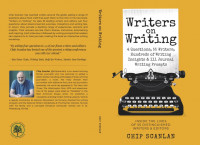
From reporter to the corner office: a self-publisher’s maiden voyage
poynter.org – Monday December 13, 2021

Self-publishing, once derided as ‘vanity publishing’ reserved for losers who couldn’t find a traditional publisher, has gone mainstream.
Four simple questions recently changed my life, and I hope they’ll change yours, too.
As a journalist, freelance magazine writer and author, I’ve been working for publishers for 50 years. They were shadowy figures in suits, sometimes glimpsed in the elevator, but rarely stepping into the newsroom. Often, they were just a name on my paycheck.
Nevertheless, they controlled my life, and the lives of those in the newsroom, and not just through the wages they paid. While leaving editorial decisions to editors, (usually) they ruled over the business side: printing, marketing, promotion, distribution, and all the other work required for the daily miracle of newspapers, monthly deadlines for magazines, and those for books that may stretch for years.
This fall, dissatisfied with the marketing and promotion of my last three books, I decided that it was time for a change. I wanted to control my own publishing destiny.

Michael Pietsch Looks at Publishing’s (Near) Future
publishersweekly.com – Saturday December 11, 2021

The publishing industry had an unexpectedly good year in 2020, despite the many challenges created by the pandemic. In the essay below, Hachette Book Group CEO Michael Pietsch uses lessons from last year to make some educated guesses about where the industry may be heading in the near term.
The essay is part of a larger piece that appears in the Publishers Weekly Book Publishing Almanac 2022: A Master Class in the Art of Bringing Books to Readers. Published last month by Skyhorse Publishing and written in cooperation with PW, the almanac is designed to help authors, editors, agents, publicists, and anyone else working in book publishing understand the changing landscape of the business.

Insider tricks that will help you find a publisher for your book
irishtimes.com – Thursday December 9, 2021

Lockdown offered many frustrated writers a key to unbolt the constraints of daily routine and an opportunity to work on the novel or work of nonfiction that has been gathering dust in their minds or in a bottom drawer for years. If 2022 is the year to take your book to the next stage, we asked authors and publishing professionals for their advice on how to make that happen.

How a small publisher survived the digital age
spectatorworld.com – Monday December 6, 2021

In The Truth about Publishing, Sir Stanley Unwin writes: “It is easy to become a publisher, but difficult to remain one.” David R. Godine has accomplished the difficult task of remaining one for fifty years, and in the beautifully designed and set Godine at Fifty — would we expect any less from a Godine book? — he tells the story of the company’s beginning and survival and of each book he has published over the years, chock-full of reproductions of the company’s covers, woodcuts, and illustrations. This is a book about books for book lovers.
Raised in Boston, David R. Godine got his start in printing at Dartmouth, where he met the head of Dartmouth Publications, “a scholar of the history of graphic art, a fine teacher and a devoted mentor.” Godine worked with him for three years in his shop before spending a term at Oxford’s Bodleian, two weeks at France’s Bibliothèque nationale, and a week in Greece.

Level Up Your Reading: Become a Literary Magazine Volunteer Reader
bookriot.com – Thursday December 2, 2021

For avid readers, sometimes books can lose their appeal. You might get burned out or are unable to find the joy in keeping up with all the latest book releases. You could take a break in reading altogether, but there are other opportunities to level up your reading skills while putting your eye for detail to good use. One of those opportunities to become a literary magazine reader.
I had the great privilege of reading for two literary magazines in the past — The Missouri Review and The Masters Review — and both experiences proved invaluable to me as a reader and writer. It opened up my eyes to the blood, sweat, and tears that editors and readers put into these small but mighty publications. From a writer’s perspective, it also created an added respect for editors.

So you want to become a better writer? Be a better reader.
eu.usatoday.com – Tuesday November 30, 2021

People who write habitually – for work or for fun, journal entries or blog posts, book reports or short stories – often want to put their better foot forward, but the eccentricities and minutiae of the English language can be extraordinarily daunting.
As a professional word person, I know this as well as anyone: There’s always so freaking much to remember, from the basic differentiation between treacherous homophones (their, they’re, there), to the fine points of grammar (subject-verb agreement! the dreaded subjunctive!), to where to put the punctuation. (Some days I’m tempted to save up all the commas, colons and periods and dump them at the end of whatever I’m writing and leave it to the reader to sort out.)
These things are important, to be sure: God is in the details, they tell us, but so, they tell us, is the devil. And sometimes I’m simply asked for simple big-ticket advice on improving one’s writing.

Writing for our young readers is the most important fiction of all
independent.ie – Sunday November 28, 2021

Some years ago, the novelist Martin Amis gave an interview in which he asserted that the only circumstances under which he would write a children’s book were if he had suffered a serious brain injury. “In my view,” he said, “fiction is freedom and any restraints on that are intolerable.”
Leaving aside the fact that it’s ridiculous to think that writing children’s fiction places any restraints on the author at all – if anything, it has the opposite effect – the most surprising element of the quote is Amis’s haughty disregard for young adult fiction. One could make the case that it’s the most important fiction of all. After all, is there a serious adult reader or writer out there who has not enjoyed a lifetime of reading because they discovered a love of books when they were young?

The Brontës, the Shelleys, Kingsley and Martin Amis: new research suggests literary relatives share similar writing styles
theconversation.com – Thursday November 25, 2021

From Jane Austen to James Patterson, every author has their own way of writing. And that writing is often discussed in terms of “style”. Essentially, style refers to “how” something is written – it is more concerned with form than content. So when, for example, someone remarks that they “enjoyed the story” but “didn’t like how it was written”, they are commenting on the style.
If you want to see an example of different styles in action, just compare something like The Hobbit by JRR Tolkien to Ulysses by James Joyce. The Hobbit is written for a general audience, it’s a good old-fashioned story told through clear, accessible language. Ulysses is a more difficult read, full of obscure terms, complex phrasing, and cryptic references to other materials.

Ghostwriters Come out of the Shadows
publishersweekly.com – Sunday November 14, 2021

When Penguin Random House announced in July that it would be publishing a memoir by Prince Harry, there was one name that was, conspicuously and appropriately, left off the press release. The man channeling the Duke of Sussex’s voice for the book, J.R. Moehringer, was nowhere to be found among the details the publisher released. But those in the industry know that Moehringer, one of the highest-profile ghostwriters working, will be an essential component in the royal’s book—even if his name never appears on the final product.
Ghostwriting, or “collaborating” as it’s now called, is nothing new. For as long as celebrities have been writing books, others have quietly helped them do it. It’s highly specialized work that requires a blend of skills; industry sources say the best collaborators are equal parts editor, reporter, writer, mimic, and shrink. And in today’s industry, where publishers are more and more reliant on nonfiction projects by authors with significant platforms, good collaborators are in higher demand than ever. It’s also the kind of work, very handsomely paid at the high end, which is appealing to a growing population: writers, journalists, and editors.

Big Issue’s John Bird: Writing a novel? Don’t follow my advice, I’ve been in literary agony for 20 years
inews.co.uk – Friday November 12, 2021

On a single night 20 years ago, I gave up smoking, drinking and sex and started to write a book. I was living in a large, multi-occupational house with thin walls, and you could do nothing without everyone hearing you. The book was to be a novel about my birthdate – 30 January – which had made periodic appearances of note in history, tying them together in my screaming, screwing, crying house.
Like 30 January 1606, when the first of the Gunpowder plotters were hung, drawn and quartered; 30 January 1649, the execution of Charles I; 30 January 1661, the digging up and hanging of the dead body of Oliver Cromwell; and 30 January 1969, when The Beatles made their last public appearance together, on the roof of their office in the West End of London. Dozens of these 30th of Januarys would each have a chapter. I started one version, abandoned it, started another, then abandoned that. However hard I struggled to complete it, I found myself revising it, rewriting it or starting again. A million words piled up, to no avail. And now, 20 years on, I am about to finish another version that looks nothing at all like the original.
Get the free newsletter | Submit a news item or article | Get Writers' News for your website





